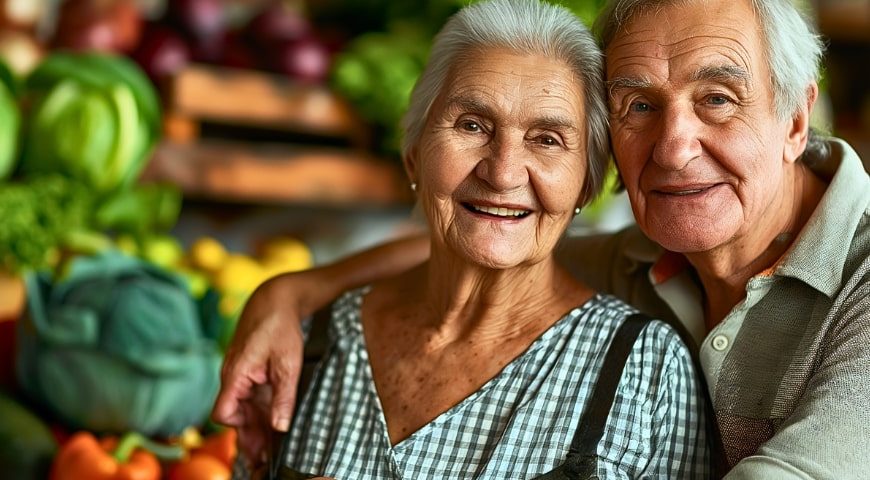
Did you know our bodies absorb nutrients differently after age 50? That means what kept us fueled in our younger years might not be enough anymore. But don’t worry—this doesn’t doom you to bad health! You just need to understand your changing needs and adapt to them. This post will explore the nutritional needs of older adults.
General Nutritional Needs for Older Adults
1. Macronutrients
Our bodies rely on three main types of nutrients: protein, carbohydrates, and fats. These are macronutrients because we need them in larger amounts.
- Protein: This superstar nutrient helps build and maintain muscle mass, which is especially important as we age. Lean meats, poultry, fish, eggs, beans, and lentils are excellent protein sources. Aim for around 0.8 grams of protein per kilogram of body weight daily.
- Carbohydrates: Carbs get a bad rap sometimes, but they’re our body’s main energy source! The key is focusing on complex carbohydrates in whole grains, fruits, and vegetables. These provide sustained energy and essential fiber, which keeps our gut healthy.
- Healthy Fats: Don’t fear fat! Healthy fats are crucial for brain health and keeping us feeling full. Olive oil, avocados, nuts, and fatty fish like salmon are all packed with good-for-you fats.
2. Micronutrients
Micronutrients, like vitamins and minerals, are needed in smaller amounts but play a vital role in keeping our bodies functioning properly. Here are a few key ones for older adults:
- Calcium and Vitamin D: This dynamic duo works together to keep our bones strong and prevent osteoporosis. Dairy products, leafy green vegetables, and fortified foods are good sources of calcium. Our skin mainly produces vitamin D through sunlight, but fatty fish and eggs can help us meet our needs.
- Vitamin B12: Vitamin B12 is essential for healthy nerve function and keeping our red blood cells working properly. As we age, our bodies become less efficient at absorbing B12. Meat, fish, poultry, eggs, and fortified cereals are all good sources.
- Potassium: This mineral helps regulate blood pressure and keeps muscles functioning correctly. Fruits, vegetables, and potatoes are all naturally high in potassium.
3. Hydration
As we age, our sense of thirst can become less sharp. That means dehydration can be a bigger risk, even if we don’t feel thirsty. Aim to drink plenty of fluids throughout the day, even if you don’t feel parched. Water is always the best choice, but low-fat milk, unsweetened tea, and fruit juice can all contribute to your daily fluid intake.
Ready to take charge of your health?
Making smart food choices is an empowering way to feel your best and live a fulfilling life. Remember, good nutrition isn’t just about what you eat and how much. Consult your doctor or a dietitian for advice on portion control and creating a diet that fits your needs.
The Mountain Side of Warm Springs fosters an environment of purpose and independence for our residents. We aim to ensure an enjoyable, fulfilling life for the seniors in our care. Click here to learn more about our customized senior services. You can also click here for information about our suites.
Schedule a visit to Mountain Side by clicking here.
Thanks for visiting!



